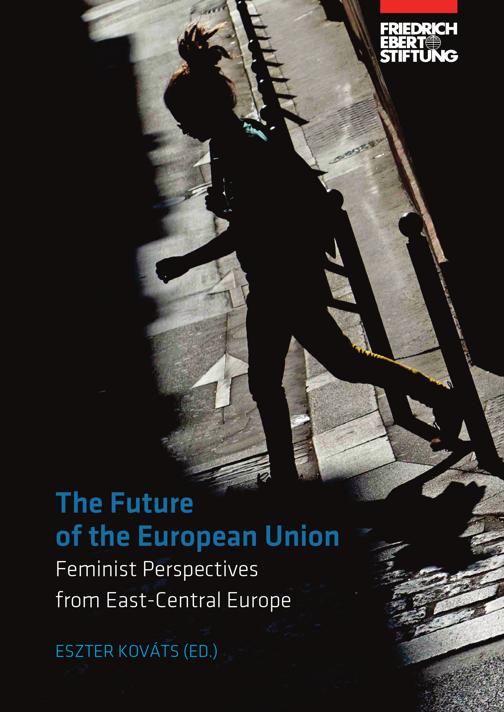Publikationen der StiftungThe future of the European Union Titel
Titelaufnahme
- TitelThe future of the European Union : feminist perspectives from East-Central Europe
- Herausgeber
- Körperschaft
- Erschienen
- Umfang1 Online-Ressource (107 Seiten)
- SpracheEnglisch
- DokumenttypDruckschrift
- Schlagwörter (LOCAL); ; ; ; ; ; ; ; ; ; ; ; ; ; ; ; ; ; ; ; ; ;
- Schlagwörter
- Geografika
- ISBN978-615-80161-5-5
- URN
- Das Dokument ist frei verfügbar
- Nachweis
- Archiv
This publication attempts to contribute to the debates on the future of the European Union from a social-democratic and feminist perspective.
The starting point of this volume, as exposed in Anikó Gregor’s and Andrea Pető’s introductory chapters, is that equality between men and women at EU level is discussed mainly in connection with economic considerations — gender equality itself is often promoted in the context of greater participation in the labour market, thus promoting economic growth. This approach, as many have pointed out, has strengthened in recent years: gender equality has to be addressed, because it is profitable for the state and/or the market. The volume challenges this approach.
After the introductory chapters follow case studies which attempt to formulate propositions beyond the false dichotomy of progressives vs. conservatives. The case studies pick out some relevant terrains on which crucial re-considerations are needed, new social-democratic answers need to be found. When addressing the feminist and East-Central European perspectives, Elena Zacharenko proposes a social framing on the field of reproductive rights; Edit Szénássy analyses the EU’s and three East-Central European national Roma strategies which can be thought-provoking for progressive actors committed to human rights; György Mészáros courageously addresses the potential conflicts between feminist aims and current mainstream forms of LGBT activism on the European level and how to move forward; and Csilla Malomvölgyi formulates some dilemmas arising in the field of refugee and migration policy of the EU.
The last section explicitly addresses the economic architecture of the EU and what its considering and reconsidering mean, in constructive terms, for feminist activism (Emília Barna et al.), for the global responsibilities (Zuzana Uhde) and for possible new scenarios and imaginable policy measures addressing the structural problems (Zofia Łapniewska). The concluding chapter by a Hungarian social-democratic politician, Kata Tüttő, who works in the Environment, Climate Change and Energy Commission of the European Committee of the Regions, describes the challenges to tackle for social democracy, in the prospect of radical changes provoked by digitalization.
